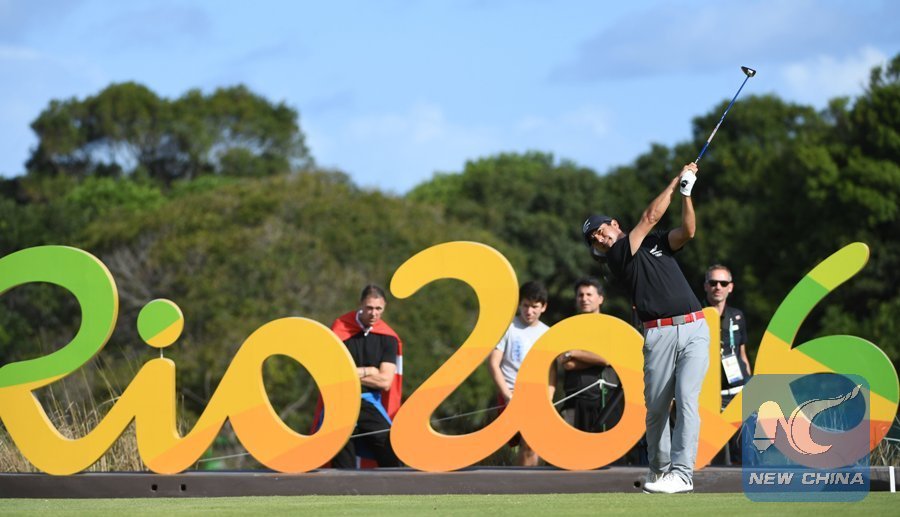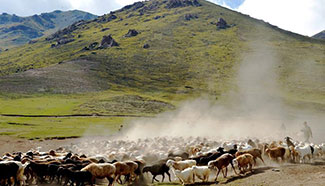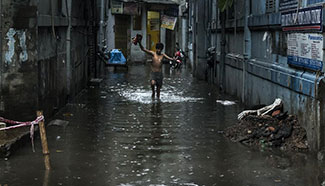
Chile's Felipe Aguilar during the opening ceremony of the Rio 2016 Olympic Games at Maracana Stadium in Rio de Janeiro on August 5, 2016. (AFP FILE PHOTO)
SAN FRANCISCO, Aug. 14 (Xinhua) -- An ongoing study suggests that rising heat and humidity due to climate change may put most cities around the world off-limits for summer Olympics.
While findings of the study are still forthcoming and hold much broader implications than the future of outdoor Olympics, a group of researchers wrote in The Lancet that only eight Northern Hemisphere cities outside of western Europe are likely to be cool enough to host the summer games by 2085.
San Francisco, on the U.S. west coast, would be one of just three North American cities that could serve as hosts, according to the researchers, including three at University of California, Berkeley, in a commentary titled "The last Summer Olympics? Climate change, health and work outdoors" published in the recent British medical journal.
"Climate change could constrain the Olympics going forward," Kirk Smith, a professor of global environmental health in the School of Public Health at UC Berkeley, was quoted as saying in a news release from the school. "And not just because of rising sea levels."
Smith was joined by UC Berkeley public health professor John Balmes, Alistair Woodward of the University of Auckland and Cindy Chang, the physician in charge of UC Berkeley' s athletic teams and the chief medical officer for Team USA at the 2012 London Olympics in co-authoring the commentary.
Using two climate models to project rising temperatures over the next century, they applied the results to current safety procedures used in determining the viability of a host city and explained how their findings can be used to examine the viability of future Olympic sites based on a measurement that combines temperature, humidity, heat radiation and wind.
The researchers focused on the Northern Hemisphere, home to 90 percent of the world' s population, and considered only cities with at least 600,000 residents, the size considered necessary for hosting the games. Cities with elevations over a mile, or 1.6 kilometer, above sea level were omitted, as the most recent Olympic games hosted at such an altitude, Mexico City in 1968, faced challenges of their own.
The findings assumed that any venue with more than a 10 percent chance of having to cancel a marathon - one of the summer Olympics' signature and exclusively outdoor events - on short notice would not be a viable host city. "If you' re going to be spending billions of dollars to host an event, you' re going to want have a level of certainty that you' re not going to have to cancel it at the last minute," Smith said.
The results indicate that by 2085, Istanbul, Madrid, Rome, Paris and Budapest - all cities that are or were in contention for either the 2020 or 2024 Summer Olympics - would be unfit to host the games. Tokyo, the city that has secured the 2020 summer Olympiad, would also be too hot to ensure athlete safety, should these projections come to pass.
And by the 22nd century, if their projections play out, the researchers concluded that only four Northern Hemisphere cities would be left on the list: Belfast and Dublin, Ireland; and Edinburgh and Glasgow in Scotland.










